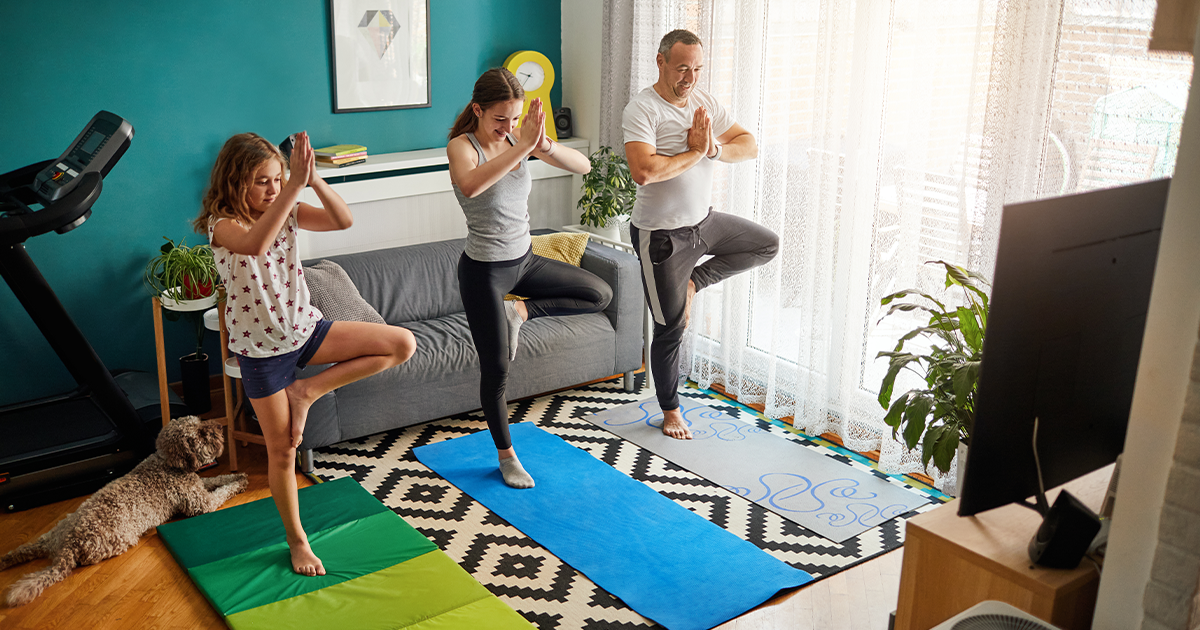Body image is the way you feel about your body. According to Dr. Sara Gonzalez, pediatric psychologist at Children’s Minnesota, body image goes far beyond what someone thinks about their body. Body image reflects societal values and can force youth to make judgements about their self-worth based on their looks. An unhealthy body image can lead to low self-esteem, elevated symptoms of anxiety or depression, and eating disorders.
How has COVID-19 affected body image?
COVID-19 has brought on a lot of stress and worry for everyone, and everyone is managing this pandemic differently. According to Dr. Gonzalez, she has seen an increase in youth’s concerns over their body image in her clinical practice since the pandemic began.
“During the health crisis of COVID-19, [the phrase] ‘quarantine 15’ became a viral social media trend that is harmful. It portrays weight gain and not being able to keep the expected body standard as the worst thing that can happen to an individual,” said Dr. Gonzalez.
In addition, COVID-19 has brought on a lot of exercise-related concerns. Not being able to be as active as they were in the past has led youth to voice concerns about their ability to maintain their physique. Dr. Gonzalez explained the ways kids and teens were once active have all been altered due to the response of the pandemic from stay-at-home orders and quarantine to cancelled sports and isolation from social activities.
All of these factors can lead youth to engage in patterns of over-exercising or disordered eating patterns, such as food restriction or carb counting, in order to fulfill the pressure of re-establishing pre-home confinement physique or fitness level.

Tips for parents to help kids and teens with body image
Talk about it
Asking kids and teens directly about their body image can validate their concerns and make them feel better about the body image struggles they may have. Even when it can be hard to hear your child make disparaging comments about their bodies, do not dismiss them by saying things such as “that’s silly” or “no, you don’t.” Actively listen to their concerns and ask follow-up questions.
Point out harmful content
Gender and body stereotypes on screens and in marketing campaigns can alter your child’s perception of what they are supposed to look like. Discussing and noting the unrealistic portrayal of certain body types, or flawless skin types and tones can open conversation about what your child is identifying with or striving to be. Talk about what’s wrong with the images and how they are portrayed.
Help kids feel confident
Try not to make comments about their weight, body shape or appearance—whether positive or negative. Place value on their personality, skills, talents or interests. Help them celebrate themselves and all of the amazing things their bodies help them do.
Be a good role model
Kids hear what you say about your own body, so talk about it in positive ways. Do your best to take care of your own body through eating a healthy diet and being active every day. Kids will pick up on this and will do the same for themselves.
Watch your language
Try to stay away from praising thinness, diet talk, and the ‘perfect’ body. Focus on body functionality and all your child can do such as participate in sports, and be engaged in school or community activities. Engage your child in a discussion of what they value about themselves besides their looks. Create a list of all the things your body lets you do and add to it.
Promote healthy exercise habits
Discuss with your child the benefits they are getting from exercise such as mood boost, increased strength and improved cardiorespiratory health. Be on the lookout for unhealthy patterns like fatigue or exhaustion (physical or emotional) due to exercise, frustration if they miss a workout, rigidity in workout schedule, changes in eating patterns, or measuring self-worth based on amount of workouts or weight loss.
If you are concerned about your child’s negative body image perceptions, exercising habits, or disordered eating patterns that are interfering with your child’s functioning or well-being, contact your primary care provider or Behavioral Health specialists.
You can find help on the Children’s Minnesota Behavior Health Support Hub: Living Now.